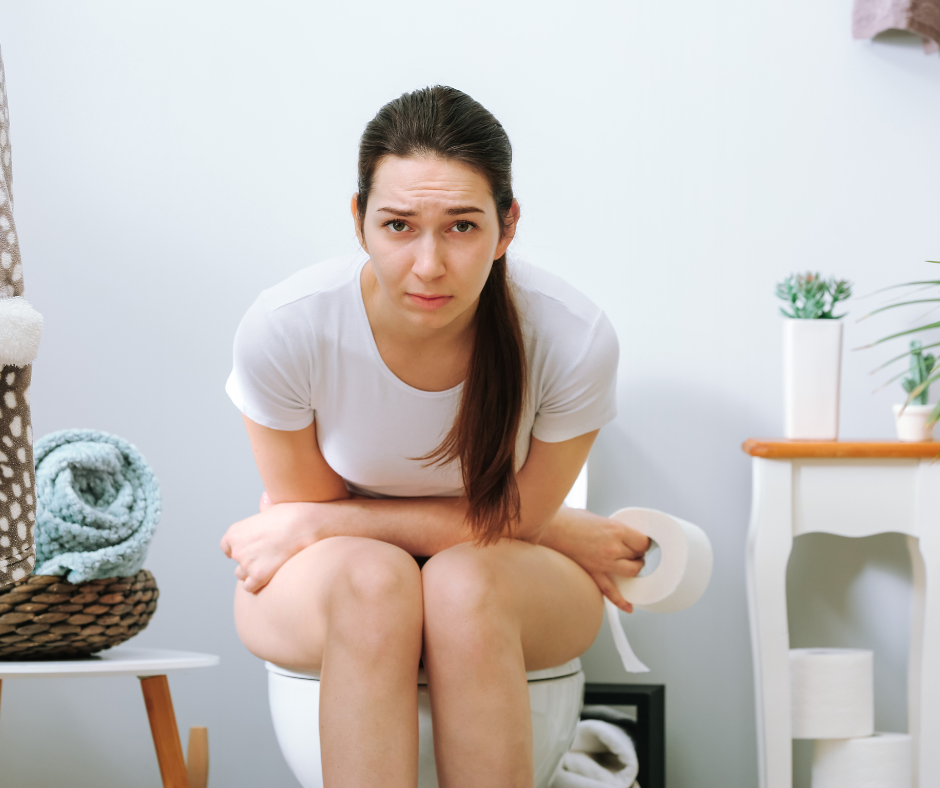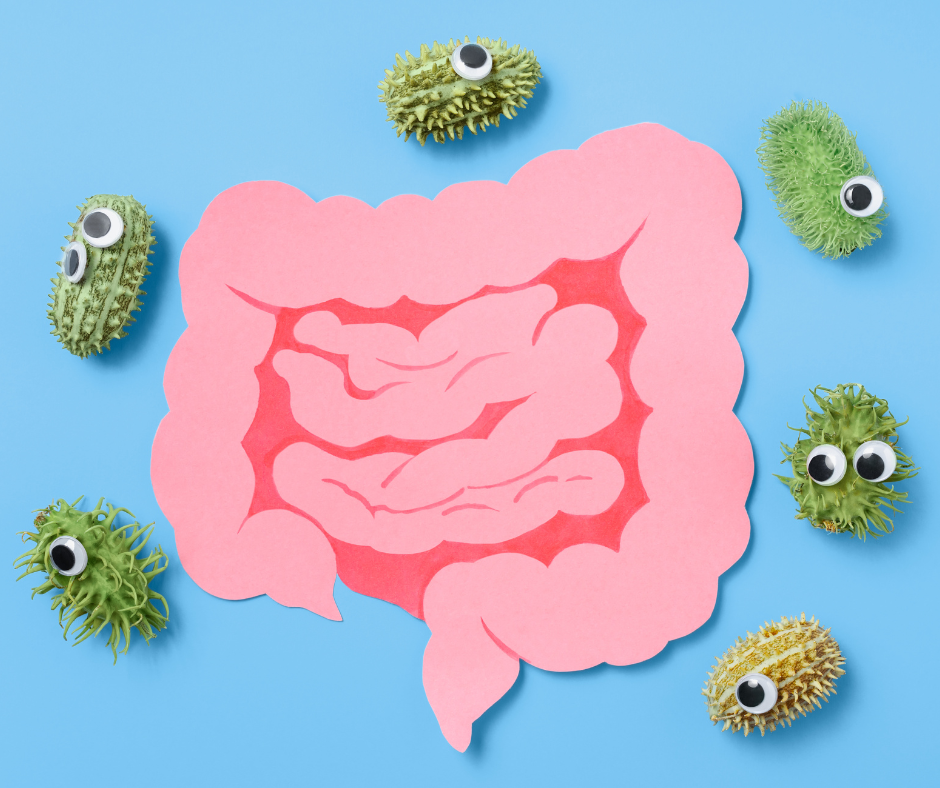The Link Between Mineral Imbalance & Constipation
If you struggle with constipation, you’ve probably tried everything—fiber, water, probiotics, and even laxatives. But let’s talk about another piece of the puzzle that isn’t about another supplement or diet change, but rather your body’s mineral balance.
Minerals play a crucial role in digestion, gut motility, and overall health. If your body is depleted, your digestion slows down, leaving you bloated, sluggish, and uncomfortable. Let’s explore why minerals are essential, how depletion impacts gut function, and how to restore balance for better digestion.
Common Mistakes People Make When Trying to Fix Constipation
When constipation becomes a chronic issue, many people try to fix it, but often in ways that don’t actually address the root cause. Here are some common missteps:
Drinking Tons of Water and Wondering Why It’s Not Working – If you find yourself constantly thirsty or drinking water all day without any constipation relief, it may be because your body isn’t absorbing it properly. Water needs minerals (electrolytes like sodium, potassium, and magnesium) to be pulled into your cells. Without these minerals, water passes right through, leaving you feeling dehydrated despite drinking plenty.
Overusing Laxatives Without Replenishing Minerals – If you’re using laxatives so often that they cause loose stool or diarrhea, you’re also losing minerals through your stool. This can create a vicious cycle—laxatives empty your bowels temporarily, but in the long run, they deplete minerals like sodium, magnesium, and potassium, which are essential for gut motility. Without replacing them, constipation can return even worse.
Eliminating Too Many Foods and Missing Out on Mineral-Rich Options – Cutting out entire food groups to “fix” constipation can backfire if you’re unknowingly eliminating key sources of essential minerals. When your diet becomes too restrictive, it’s easy to miss out on the nutrients your gut needs for smooth motility and overall function. Over time, this can actually worsen mineral depletion and make constipation harder to resolve.
Drinking Too Much Coffee or Eating Processed Foods – Caffeine and ultra-processed foods can flush essential minerals from your body, creating an imbalance in electrolytes. If you rely on coffee to “get things moving,” but it’s making you feel jittery, anxious, or dehydrated, it could be doing more harm than good.
What Are Minerals and Why Do They Matter?
Minerals are essential nutrients that support almost every function in the body, from nerve signaling to muscle contractions and enzyme production. Some of the most important minerals for digestion include:
Magnesium – Helps relax intestinal muscles and promotes smooth bowel movements.
Potassium – Works with sodium to regulate hydration and prevent sluggish digestion.
Sodium – Supports stomach acid production and electrolyte balance.
Calcium – Helps regulate muscle contractions in the intestines.
Zinc – Critical for gut lining repair and stomach acid production.
Without these key minerals, digestion slows, nutrient absorption declines, and constipation can become a chronic issue.
Signs of Mineral Depletion and Its Impact on Digestion
How do you know if you’re mineral deficient? Here are some telltale signs:
Low energy and fatigue – Minerals help with cellular energy production.
Frequent headaches – Electrolyte imbalances can contribute to tension and dehydration.
Chronic thirst – If you’re always thirsty despite drinking water, your mineral balance might be off.
Muscle cramps or twitching – A sign of magnesium or potassium deficiency.
Slow digestion and constipation – Minerals regulate gut motility and hydration.
Fluid retention and bloating – Imbalanced minerals can lead to poor hydration regulation.
If you resonate with several of these symptoms, it’s time to address mineral balance.
How to Restore Mineral Balance for Better Digestion
Step 1: Stop Mineral Loss
Before adding minerals back in, you need to prevent unnecessary depletion. Here’s how:
Manage stress and support the nervous system – Chronic stress burns through magnesium and potassium. Incorporate deep breathing, meditation, time in nature, or gentle movement to calm your body.
Cut back on caffeine, alcohol, and processed foods – These can flush essential minerals from the body, making digestion even harder.
Reduce toxin exposure – Environmental toxins increase your body’s need for minerals to aid in detoxification. Use filtered water, natural cleaning products, and organic foods when possible.
Step 2: Get Minerals from Whole Foods
Food is the best source of minerals, especially when eating a varied, nutrient-dense diet. Focus on:
Unrefined sea salt – Unlike table salt, sea salt contains trace minerals essential for hydration and digestion.
Potassium-rich foods – Bananas, potatoes (with skin), avocados, coconut water, and leafy greens.
Magnesium-rich foods – Dark leafy greens, pumpkin seeds, almonds, and cacao.
Calcium-rich foods – Dairy, sesame seeds, sardines, and leafy greens.
Zinc-rich foods – Oysters, beef, pumpkin seeds, and lentils.
Other mineral-dense foods – Fruits, beans, legumes, and root vegetables like carrots, sweet potatoes, and beets.
Bone broth and mineral-rich soups – These provide calcium, magnesium, and potassium in a highly absorbable form.
Easy Adrenal Mocktail Recipe
An adrenal mocktail can help replenish lost minerals and support digestion:
½ cup coconut water (potassium)
½ cup orange juice (natural vitamin C and minerals)
¼ tsp sea salt (sodium and trace minerals)
Optional: 1 tsp cream of tartar (extra potassium boost)
Mix and drink in the afternoon or when feeling fatigued.
Step 3: Consider Supplementation for Extra Support
If you’re severely depleted, supplementation may be helpful. Some options include:
Electrolyte replacement powders – Help replenish minerals lost through stress, sweat, or loose stools, and support proper hydration for smoother digestion.
Trace mineral drops – A convenient way to boost mineral intake.
Magnesium citrate or glycinate – Supports muscle relaxation and gut motility.
Always consult a healthcare provider before starting new supplements, especially if you have existing health conditions.
How Do You Know Your Mineral Balance Is Improving?
Once you start addressing mineral depletion, you should notice:
More energy and mental clarity
Fewer headaches and muscle cramps
Less frequent thirst and better hydration
Regular, easier bowel movements
Reduced bloating and fluid retention
Balancing minerals doesn’t just improve digestion—it enhances overall well-being and energy levels, making you feel more vibrant and resilient.
Final Thoughts: Minerals May be the Missing Link to Better Digestion
If constipation has been an ongoing struggle, it might be time to shift your focus from just fiber and hydration to mineral balance. Minerals are essential for gut motility, hydration, and overall digestion. By stopping unnecessary mineral loss, prioritizing nutrient-dense foods, and supplementing when necessary, you can support smoother digestion and long-term gut health.
Start small—add mineral-rich foods, hydrate strategically, and see how your digestion responds. Your gut (and your energy levels) will thank you!










